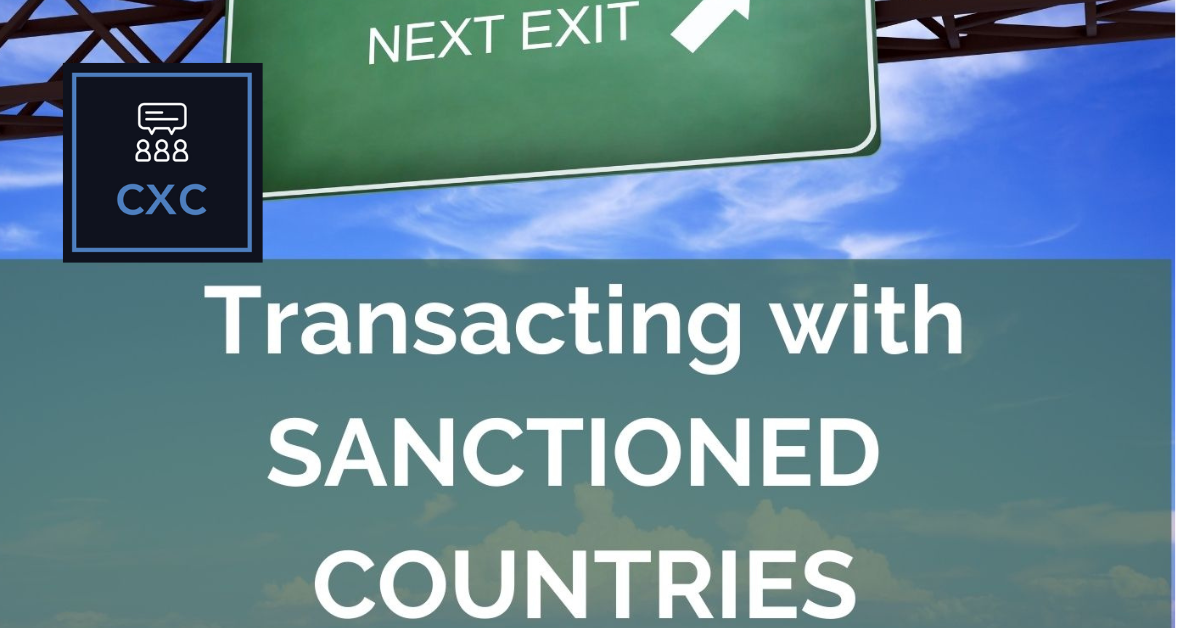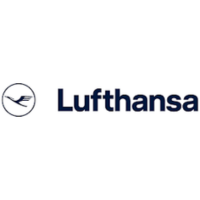Transacting with Sanctioned Countries
By ComplexCountries
17/04/2023
At CompleXCountries, it is our mission to provide a forum where treasurers can openly discuss issues and share experiences. We then publish the essence of the discussion, but in a format that respects the need for confidentiality – though it is valuable general information, there is no upside to telling the whole world your specific company has had a problem with Bank A, or that you find country B’s exchange control regulations difficult to handle.

Can’t get enough? Check out these latest items
 https://treasuryxl.com/wp-content/uploads/2023/03/Treasurer-Search-Logo.png
200
200
treasuryXL
https://treasuryxl.com/wp-content/uploads/2018/07/treasuryXL-logo-300x56.png
treasuryXL2026-02-25 14:32:182026-02-25 14:32:18Treasury Analyst @ Treasurer Search
https://treasuryxl.com/wp-content/uploads/2023/03/Treasurer-Search-Logo.png
200
200
treasuryXL
https://treasuryxl.com/wp-content/uploads/2018/07/treasuryXL-logo-300x56.png
treasuryXL2026-02-25 14:32:182026-02-25 14:32:18Treasury Analyst @ Treasurer Search https://treasuryxl.com/wp-content/uploads/2025/02/LSEG-BLOGS-featured-13.png
200
200
treasuryXL
https://treasuryxl.com/wp-content/uploads/2018/07/treasuryXL-logo-300x56.png
treasuryXL2026-02-25 07:00:572026-02-25 07:22:58Lookback 2025: Volatility and technology drive pricing trends
https://treasuryxl.com/wp-content/uploads/2025/02/LSEG-BLOGS-featured-13.png
200
200
treasuryXL
https://treasuryxl.com/wp-content/uploads/2018/07/treasuryXL-logo-300x56.png
treasuryXL2026-02-25 07:00:572026-02-25 07:22:58Lookback 2025: Volatility and technology drive pricing trends https://treasuryxl.com/wp-content/uploads/2026/02/Nomentia-BLOGS-featured.png
200
200
treasuryXL
https://treasuryxl.com/wp-content/uploads/2018/07/treasuryXL-logo-300x56.png
treasuryXL2026-02-24 07:00:562026-02-23 16:40:30Nomentia Treasury Trends Report 2026
https://treasuryxl.com/wp-content/uploads/2026/02/Nomentia-BLOGS-featured.png
200
200
treasuryXL
https://treasuryxl.com/wp-content/uploads/2018/07/treasuryXL-logo-300x56.png
treasuryXL2026-02-24 07:00:562026-02-23 16:40:30Nomentia Treasury Trends Report 2026 https://treasuryxl.com/wp-content/uploads/2026/02/Kantox-BLOGS-featured-1.png
200
200
treasuryXL
https://treasuryxl.com/wp-content/uploads/2018/07/treasuryXL-logo-300x56.png
treasuryXL2026-02-23 16:01:512026-02-23 16:05:49Kantox appoints Mathieu Lacour as its new Chief Executive Officer
https://treasuryxl.com/wp-content/uploads/2026/02/Kantox-BLOGS-featured-1.png
200
200
treasuryXL
https://treasuryxl.com/wp-content/uploads/2018/07/treasuryXL-logo-300x56.png
treasuryXL2026-02-23 16:01:512026-02-23 16:05:49Kantox appoints Mathieu Lacour as its new Chief Executive Officer https://treasuryxl.com/wp-content/uploads/2025/11/FinanceKey-Featured.png
200
200
treasuryXL
https://treasuryxl.com/wp-content/uploads/2018/07/treasuryXL-logo-300x56.png
treasuryXL2026-02-23 07:00:402026-02-23 10:24:50Real-time treasury data in Excel
https://treasuryxl.com/wp-content/uploads/2025/11/FinanceKey-Featured.png
200
200
treasuryXL
https://treasuryxl.com/wp-content/uploads/2018/07/treasuryXL-logo-300x56.png
treasuryXL2026-02-23 07:00:402026-02-23 10:24:50Real-time treasury data in Excel https://treasuryxl.com/wp-content/uploads/2024/01/Template_VACANCY-featured.png
200
200
treasuryXL
https://treasuryxl.com/wp-content/uploads/2018/07/treasuryXL-logo-300x56.png
treasuryXL2026-02-20 07:00:192026-02-19 13:09:43Vacancy Treasury Consultant – Brussels
https://treasuryxl.com/wp-content/uploads/2024/01/Template_VACANCY-featured.png
200
200
treasuryXL
https://treasuryxl.com/wp-content/uploads/2018/07/treasuryXL-logo-300x56.png
treasuryXL2026-02-20 07:00:192026-02-19 13:09:43Vacancy Treasury Consultant – Brussels https://treasuryxl.com/wp-content/uploads/2026/02/caceis-logo-200x200-2.png
200
200
treasuryXL
https://treasuryxl.com/wp-content/uploads/2018/07/treasuryXL-logo-300x56.png
treasuryXL2026-02-19 11:20:292026-02-19 11:30:38STAGE – OTC Derivatives Collateral Officer H/F @ CACEIS
https://treasuryxl.com/wp-content/uploads/2026/02/caceis-logo-200x200-2.png
200
200
treasuryXL
https://treasuryxl.com/wp-content/uploads/2018/07/treasuryXL-logo-300x56.png
treasuryXL2026-02-19 11:20:292026-02-19 11:30:38STAGE – OTC Derivatives Collateral Officer H/F @ CACEIS https://treasuryxl.com/wp-content/uploads/2017/10/Adidas.png
200
200
treasuryXL
https://treasuryxl.com/wp-content/uploads/2018/07/treasuryXL-logo-300x56.png
treasuryXL2026-02-19 11:12:362026-02-19 11:23:14INTERNSHIP – FINANCE, TREASURY or AUDIT @ adidas
https://treasuryxl.com/wp-content/uploads/2017/10/Adidas.png
200
200
treasuryXL
https://treasuryxl.com/wp-content/uploads/2018/07/treasuryXL-logo-300x56.png
treasuryXL2026-02-19 11:12:362026-02-19 11:23:14INTERNSHIP – FINANCE, TREASURY or AUDIT @ adidas https://treasuryxl.com/wp-content/uploads/2026/02/Lufthansa-Logo-200x200-1.png
200
200
treasuryXL
https://treasuryxl.com/wp-content/uploads/2018/07/treasuryXL-logo-300x56.png
treasuryXL2026-02-19 10:54:222026-02-19 11:25:05Internship Treasury Operations @ Lufthansa
https://treasuryxl.com/wp-content/uploads/2026/02/Lufthansa-Logo-200x200-1.png
200
200
treasuryXL
https://treasuryxl.com/wp-content/uploads/2018/07/treasuryXL-logo-300x56.png
treasuryXL2026-02-19 10:54:222026-02-19 11:25:05Internship Treasury Operations @ Lufthansa




Sanctions pose an additional problem – and, of course, they are very topical at the moment. The problem is simple: while everybody is anxious to comply with all the rules and regulations, there are always situations which require some element of judgment, or where the rules are not totally consistent. With sanctions, the main issue which arises is that some trade continues to be permitted, usually for humanitarian reasons, and generally involving medical products. But, while medical products can still be sold to Russia and Iran, for example, most banks refuse to handle the cash settlements related to these transactions.
There can also be inconsistencies between different sanctioning regimes: the US still applies sanctions against Cuba, while most other countries do not. Even for Russia, members tell us the EU’s sanctions list is not fully identical to that of the US.
To avoid potentially repeating legal considerations we cannot verify, we have decided not to produce a detailed report of our discussions, but to provide a list of the general conclusions and things to watch out for. The items below do not constitute legal advice, but rather, a list of things to beware of. As always, treasurers and their companies are responsible for ensuring compliance with all relevant and applicable laws, and obtaining professional advice.
General advice:
Bottom line: any transaction which involves a sanctioned country will, at some point, involve cash. For this reason, the banking system is heavily scrutinised, especially by the US authorities, to identify possible non compliance with US rules – whether they have been adopted by other countries or not. The result is that it becomes very difficult to execute even those transactions which are authorised, and very few banks are willing to take the risk of becoming involved.
It is the treasurer’s responsibility to try to enable transactions which are legal, and which are part of what the business needs to do. But it is important to also make sure the business understands that, even for authorised transactions, ongoing business will be difficult and costly – while some cash will remain trapped.
This article was written by Damian Glendinning, based on Peer Group Discussions where the challenge of transacting with sanctioned countries was discussed.